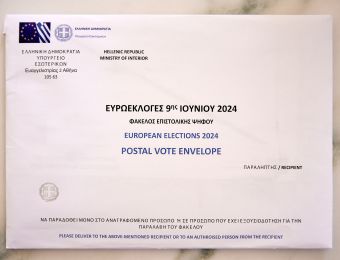European Court of Justice: Greece triumphs over Denmark in feta war

Πηγή Φωτογραφίας: Euro2day- UrbanLife.gr
Denmark broke European Union rules allowing local dairy producers to produce and export a white, crumbly cheese as “feta” outside the block, the EU’s top court said.
“Denmark has breached its obligations by failing to take measures to put an end to the use of the name ‘feta‘ for cheeses intended for export to third countries.” This was the decision of the European Court of Justice – after the European Commission’s appeal against Denmark – which, however, took into account that “Denmark did not, however, breach the obligation of good faith cooperation”
The name “feta” was registered as a protected designation of origin (PDO) in 2002. Since then, the name “feta” can only be used for cheese produced in the defined geographical area of Greece and meeting the relevant product specifications.

In the context of the present infringement proceedings by a Member State, the Commission, supported by Greece and Cyprus, claimed that Denmark breached its obligations under Regulation 1151/2012 2 by failing to take measures to prevent or stop the use of the name ‘feta’ for cheese produced in Denmark but intended for export to third countries.
Denmark countered, for its part, that Regulation 1151/2012 only applies to products sold within the Union and does not cover exports to third countries. It therefore admits that it has never taken any measures to prevent or put an end to the use of the name ‘feta’ by domestic producers in cases where their products are intended for export to third countries.
The rationale for the decision
With this decision, the Court rules, firstly, that based Regulation 1151/2012 the use of a registered name to identify products not covered by the registration that are manufactured in the Union and intended for export to third countries is not excluded from the prohibition provided for by the regulation.
Regarding, secondly, the whole context of Regulation 1151/2012, the Court points out that the Regulation protects PDOs and Protected Geographical Indications (PGIs) as intellectual property rights. The system of PDOs and PGIs was established to support producers of products linked to specific geographical areas by ensuring uniform protection of names as intellectual property rights across the Union. However, the use of a PDO or PGI to identify a product that is manufactured within the Union but does not meet the applicable specifications infringes, within the Union, on the corresponding PDO or PGI as an intellectual property right, even if this product is intended for export to third countries .
Thirdly, as regards the objectives pursued by Regulation 1151/2012, the Court recalls that the purpose of PDOs and PGIs lies in providing assistance to producers of products linked to specific geographical areas by ensuring fair returns, commensurate with the quality of their products, in securing uniform protection of names as intellectual property rights throughout the Union and in providing clear information to consumers about the properties of products which give them added value. And the use of the PDO “feta” to identify products that are manufactured within the Union but do not meet the specifications of the relevant PDO affects the aforementioned purposes, even if these products are intended for export to third countries.
Action prohibited by regulation
Therefore, according to the decision, it follows from both the letter and the overall context and purposes of Regulation 1151/2012 that such use is among the actions prohibited by the Regulation. The Court therefore concludes that Denmark, by failing to take measures to prevent and stop this type of use on its territory, has breached its obligations under Regulation 1151/2012.
In response to the second complaint put forward by the Commission, the Court finds that Denmark has not breached the obligations arising from the principle of cooperation in good faith referred to in Article 4(3) of the Treaty of the European Union (TEU). In particular, the Commission’s complaint in question alleges the same conduct as the first complaint, namely the failure to take measures to prevent and stop the use of the PDO “feta” by Danish producers to identify cheese that does not meet the applicable specifications. Although it is true that the export, from Union producers to third countries, products in relation to which a PDO is used illegally may weaken the Union’s position in international negotiations aimed at securing the Union’s quality protection systems, it is not established in this case that Denmark has carried out acts or statements that would could bring about this consequence, which would indeed constitute conduct distinct from that to which the first complaint referred.
Διαβάστε όλες τις τελευταίες Ειδήσεις από την Ελλάδα και τον Κόσμο





























Το σχόλιο σας